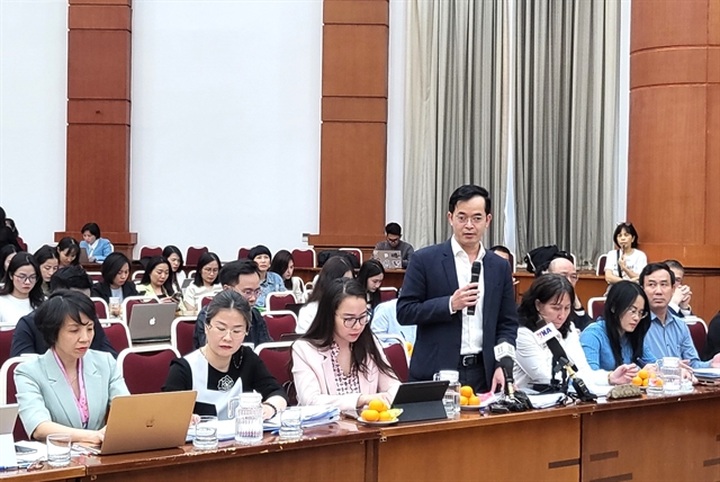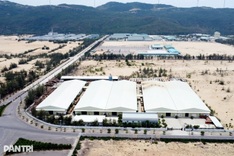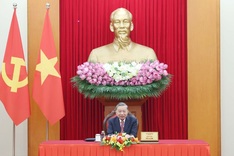
Electronic components are produced at a foreign-invested company in Quang Ninh Province.
Haggling over tariffs is not a good way to strive for balance of trade and serve the people, Deputy Minister of Finance Nguyen Duc Chi told a press conference in Hanoi on Thursday, in response to US President Donald Trump’s decision to impose a ‘reciprocal tariff’ of 46 per cent on all goods imported from Vietnam.
The tariff came as a surprise to all government agencies and businesses in Vietnam, even though the Ministry of Finance has taken a proactive approach and reduced tax rates on several imported goods in the last few weeks – especially those from the US – in an effort to increase Vietnam’s import turnover to balance out its trade surplus, according to Chi.
“We are still trying to figure out the reason and rationale behind the tax rate,” he said.
"We all want to aim for a trade balance,” he added. “But balance must come with growth – a larger trade turnover, and we shouldn’t address this through taxes.”
If one country cuts down on tariffs but the other increases them, the overall trade turnover will be reduced, which is not a good solution for either country, the official added.
“We need to be patient and keep talking and discussing with our trade partner, the US, to find better solutions,” Chi said. “We should aim for trade balance in the sense of development – increasing trade turnover but not raising taxes so that consumers in both countries can benefit from the trade development.”
Also addressing the tariffs at the conference, Nguyen Quoc Hung, director of the ministry’s Department of Tax Policy said that it is of utmost importance to figure out how US President Trump came up with the claim that Vietnam imposed a 90 per cent tariff against American goods, and how exactly his 46 per cent ‘reciprocal tariff’ was calculated.

Nguyen Quoc Hung, director of Ministry of Finance's Department of Tax Policy speaks at a press conference held at the ministry's headquarters in Hanoi on Thursday.
According to Hung, a recent report from the Office of the US Trade Representative showed that the average import tax rate for goods imported into Vietnam is only 9.4 per cent. It also stated that most US goods imported into Vietnam are subject to an import tax rate of 15 per cent or lower, with a few exceptions.
“These figures show that our tariffs are much lower than the 90 per cent rate [that Trump claimed Vietnam imposes on US goods], and the 46 per cent tax that will be applied for our goods,” Hung said.
“We need to clarify whether there are any other factors included in the calculations, or any reasons taken into consideration, besides the actual taxes,” he said.
The 46 per cent tax rate is much higher than the current tax rate that the US applies to Vietnamese goods imported into the US, Hung added.
“We can see that it will have a very negative impact on many of our manufacturing industries, especially those with a large export proportion to the US such as electronic components, agriculture, textile manufacturing and footwear production,” he said.
On March 31, based on the ministry’s review of current tax policies, the Government issued Decree 73 to adjust and significantly reduce tariff rates for 16 product categories imported into Việt Nam that are of special interest to the country’s major trade partners, including the US. They include automobiles, agricultural products, ethanol and wood and wood products.




















